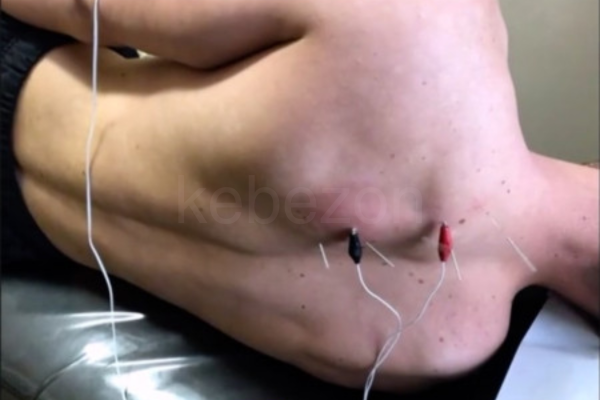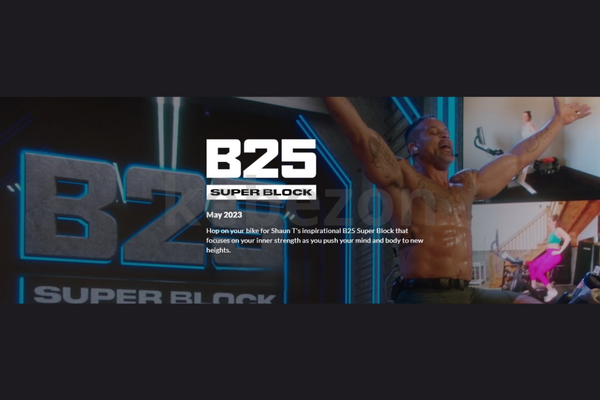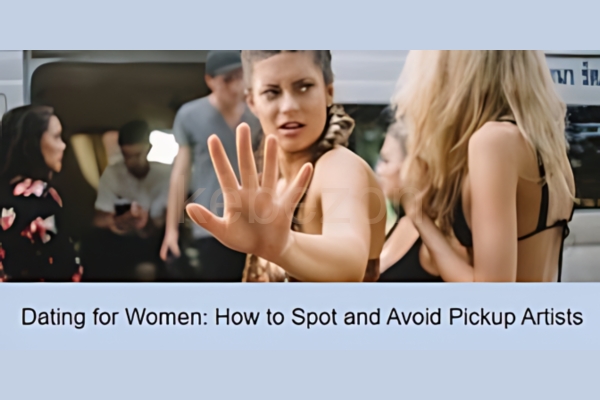-
×
 Great Masters: Haydn-His Life and Music - Robert Greenberg
1 × 5,00 $
Great Masters: Haydn-His Life and Music - Robert Greenberg
1 × 5,00 $ -
×
 Double Your Freelancing Rate 2024 with Brennan Dunn
1 × 5,00 $
Double Your Freelancing Rate 2024 with Brennan Dunn
1 × 5,00 $ -
×
 Advanced Overage Bootcamp - All Things Overages
1 × 209,00 $
Advanced Overage Bootcamp - All Things Overages
1 × 209,00 $ -
×
 The Manosphere - A New Hope for Masculinity with Ian Ironwood
1 × 5,00 $
The Manosphere - A New Hope for Masculinity with Ian Ironwood
1 × 5,00 $ -
×
 Law of Attraction Bootcamp with Hypnosis Bootcamp
1 × 39,00 $
Law of Attraction Bootcamp with Hypnosis Bootcamp
1 × 39,00 $ -
×
 Cryptocurrency Investment Course 2021: Fund your Retirement - Suppoman
1 × 5,00 $
Cryptocurrency Investment Course 2021: Fund your Retirement - Suppoman
1 × 5,00 $ -
×
 The Secret Formula That Turns Any Conversation Instantly Hypnotic with Igor Ledochowski
1 × 31,00 $
The Secret Formula That Turns Any Conversation Instantly Hypnotic with Igor Ledochowski
1 × 31,00 $ -
×
 Assessment & Electro-Acupuncture Treatment of Intrascapular Pain - Anthony Lombardi
1 × 39,00 $
Assessment & Electro-Acupuncture Treatment of Intrascapular Pain - Anthony Lombardi
1 × 39,00 $ -
×
 Client Acquisition Course with Chase Dimond
1 × 25,00 $
Client Acquisition Course with Chase Dimond
1 × 25,00 $ -
×
 Roofer Leadflow Flywheel
1 × 5,00 $
Roofer Leadflow Flywheel
1 × 5,00 $ -
×
 B25 Super Block 2023 by Shaun T
1 × 5,00 $
B25 Super Block 2023 by Shaun T
1 × 5,00 $ -
×
 The Art of Astral Projection 2023 with Jade Shaw - MindValley
1 × 5,00 $
The Art of Astral Projection 2023 with Jade Shaw - MindValley
1 × 5,00 $ -
×
 Schema therapy step by step - Remco van der Wijngaart and Hannie van Genderen
1 × 39,00 $
Schema therapy step by step - Remco van der Wijngaart and Hannie van Genderen
1 × 39,00 $
Dating for Women – How to Spot and Avoid Pickup Artists
75,00 $ Original price was: 75,00 $.5,00 $Current price is: 5,00 $.
SKU: KEB. 58667NSCE5s
Category: Seduction & Love
Tags: Dating for Women, How to Spot and Avoid Pickup Artists
You may check content proof of “Dating for Women – How to Spot and Avoid Pickup Artists” below:
Dating for women – how to spot and avoid pickup artists
Dating can be an exciting adventure filled with potential connections, but it can also present various challenges. One of the more insidious challenges women face in the dating world is navigating encounters with pickup artists (PUAs). These individuals often employ manipulative tactics designed to establish control and diminish their target’s sense of self-worth.
Understanding how to recognize the signs of pickup artists, coupled with developing a strong sense of personal boundaries, can empower women to navigate their dating experiences with confidence and safety. By being aware of the common behaviors of PUAs, women can avoid falling victim to their tactics, ensuring that dating remains an enjoyable exploration rather than a psychological battleground.
In this article, we will delve into the specific traits and techniques commonly employed by pickup artists. We will explore how to spot these signs, such as manipulative verbal cues, inappropriate physical contact, and emotional manipulation strategies. Furthermore, we’ll guide women on establishing firm boundaries and trusting their instincts in social situations. Armed with this knowledge, women can transform their dating experiences into truly meaningful connections rather than unhealthy encounters characterized by deception and manipulation.
Recognizing the signs of pickup artists
When it comes to identifying pickup artists, awareness is the key to empowerment. The signs of a PUA often manifest in various behaviors that can be red flags during any dating interaction. Much like a skilled magician who diverts attention with flashy tricks, pickup artists utilize a myriad of tactics designed to distract from their manipulative intent. When interacting with potential suitors, understanding and recognizing these behaviors can be the difference between an enjoyable date and a toxic interaction.
Some of the primary signs to watch out for include:
- Overconfidence: Pickup artists often exude an exaggerated sense of self-assurance that can come off as arrogance.
- Objectification: They tend to view women as conquests rather than individuals, leading to manipulative behaviors that objectify their targets.
- Use of Manipulative Language: PUAs often employ verbal tactics such as “negging,” which are designed to undermine self-esteem while presenting themselves as charming.
- Physical Isolation: Many PUAs will attempt to sideline friends or create environments where their targets feel isolated, making it easier to exert control over them.
By staying alert to these signs, women can better protect themselves from PUA tactics that may otherwise go unnoticed. Just as our senses heighten in the presence of danger, so too should our instincts be attuned to the nuances of social interactions that may signal manipulation.
Overconfidence and objectification
One of the hallmark traits of pickup artists is their overwhelming overconfidence. This trait often manifests as an almost cocky demeanor that can be quite off-putting. PUAs frequently thrive on the rush of chasing women, positioning themselves as charismatic predators. This exaggerated self-assurance is akin to the braggart at a bar who boasts of their escapades yet lacks genuine substance or authenticity. Such overconfidence often masks their insecurity and need for validation through conquests.
Another critical aspect of PUA behavior is the objectification of women. Rather than viewing women as equals and potential partners, pickup artists often see them as challenges or trophies to be acquired. This objectifying attitude strips women of their autonomy and complexity, treating them as mere stepping stones in the pursuit of a personal goal. For example, during conversations, PUAs might reference women in superficial terms or compare them against their peers to assess value and rank akin to judging a piece of meat at a butcher shop instead of acknowledging it as a flavorful dish.
Awareness of these traits can empower women to recognize when they are being treated as objects rather than respected partners. When a woman’s feelings, thoughts, or interests are sidelined or disregarded, it’s a significant indicator that she may be dealing with a pickup artist.
Flashy clothing and peacocking techniques
A crucial behavior to recognize in pickup artists is peacocking, a tactic that involves wearing flashy clothing or accessories designed to attract attention. Picture the flamboyant bird with vivid plumage, strutting through the forest a PUA’s outfit often contains eye-catching elements like bold patterns, bright colors, or unusual accessories aimed at eliciting curiosity and interest. The goal is to stand out and become the focal point of attention, thereby allowing the pickup artist to initiate contact and conversation.
For instance, a PUA may arrive at a social gathering dressed in a bright, sequined jacket or an outlandish accessory that has no practical purpose, effectively positioning themselves as the center of attention. This visually striking approach is designed to pique interest, much like a moth drawn to a flame. The intention behind such a strategy is to create an environment where women feel inclined to engage, making it easier for the PUA to introduce their underhanded tactics.
When attending social events, it’s essential to remain observant. If someone’s appearance seems excessively flashy or crafted purely to garner attention, it might be worth exercising caution. Ultimately, genuine individuals usually express themselves naturally rather than through exaggerated attire meant to gain quick notoriety.
Physical isolation tactics
Another prevalent behavior used by pickup artists involves physical isolation tactics. This technique serves to separate the woman from her group of friends or social circle, creating an atmosphere conducive to manipulation. The intention here is straightforward: by isolating their target, PUAs attempt to become the primary focus of attention, making the woman more vulnerable to emotional or physical advances.
Common strategies used in this approach include directing conversations away from groups, walking away with the target to a quieter area under some pretext, or purposely sidelining friends with dismissive comments. In effect, these tactics create a false sense of intimacy and comfort, leading the target to feel special while unknowingly giving away their power. It’s a consummate strategy one that can feel flattering initially, but may lead to discomfort as the dynamics shift.
For example, a PUA might say, “Let’s step outside for a moment; it’s much quieter there, and I’d love to chat with just you.” While this may seem harmless, it’s crucial to question the motive behind such proposals. If a person seems intent on isolating you from your support system, it’s a significant red flag that signals potential manipulation and emotional danger.
Negging and undermining friends
The techniques of negging and undermining friends are pivotal indicators of pickup artist behavior. Negging refers to the tactic of delivering backhanded compliments or subtle insults designed to lower a woman’s self-esteem, ultimately making her seek validation from the PUA. For instance, a pickup artist might say, “You’re surprisingly funny for someone who looks so serious,” masking an insult within what appears to be a compliment. This tactic creates a power dynamic that leaves the target feeling insecure and eager to appease the manipulator.
PUAs often apply similar tactics to undermine a woman’s friendships, creating division and discord. Their goal is to foster a sense of isolation, suggesting that her friends are overly critical or unsupportive, ultimately working to gain her allegiance. Comments such as, “Your friends seem jealous of how great you look tonight,” can quietly plant seeds of doubt in a woman’s mind regarding her support system.
This tactic perpetuates an unhealthy dynamic that can confuse and manipulate women. By intentionally creating rifts between friends and undermining the confidence of their target, pickup artists gain a psychological advantage, leading to increased vulnerability and dependence.
Verbal cues from pickup artists
Recognizing verbal cues is crucial when distinguishing pickup artists from genuine individuals. PUAs often employ various linguistic tactics designed to manipulate conversations and create emotional vulnerability. Understanding these cues can help women maintain clarity about their interactions and protect themselves from unwanted advances.
The use of compliments and backhanded remarks
A prominent strategy used by pickup artists is the use of compliments and backhanded remarks. These compliments may initially appear flattering but are often laced with underlying insults or criticisms. For instance, a pickup artist might say, “You’re quite attractive; I usually don’t go for someone with such unique style,” implying that the target’s appearance is unconventional in an unflattering manner. This tactic is designed to evoke self-doubt, compelling the individual to seek reassurance and validation from the PUA.
Moreover, this reliance on cleverly crafted compliments underscores the emotional manipulation at play. PUAs frequently intermingle genuine admiration with digs at self-worth to create confusion and dependency, thereby solidifying their power in the interaction. Recognizing the patterns in these remarks can serve as a vital tool for identifying a manipulative individual and avoiding entrapment.
Forced time constraints in conversations
Forced time constraints are another common method implemented by PUAs to manipulate social interactions. When a pickup artist uses this tactic, they create an atmosphere of urgency that compels the target to invest in the interaction quickly. A typical example might include the pickup artist stating, “I can only talk for a moment; my friends are waiting for me,” which can heighten feelings of pressure to connect before the opportunity slips away.
This technique operates on a psychological level, creating an illusion of desirability. When women feel as though they must act swiftly, it may cloud their ability to assess the appropriateness of the interaction. Instead of developing a thoughtful, genuine connection, the urgency may lead to an emotionally charged conversation that dilutes critical judgment. Awareness of this tactic can help women slow down and assess interactions on their terms, ensuring that they prioritize their emotional well-being.
Lack of personal information sharing
Another red flag indicative of a pickup artist is a lack of personal information sharing. Many pickup artists will deliberately steer conversations away from themselves, redirecting the focus onto their target and maintaining an air of mystery. This technique is strategic, as it keeps the target intrigued and invested while keeping the PUA’s motivations shrouded.
For example, during an interaction, a PUA might make vague claims about past relationships or feelings of connection while deliberately avoiding substantial personal anecdotes. “I can’t explain why I feel connected to you,” might be one way to superficially invite intimacy without divulging any genuine self-disclosure. This behavior is designed to foster emotional engagement without granting the target critical context about the PUA’s character or values.
Understanding this tactic is vital; when interactions feel one-sided or superficial, it can be an indication that the individual attempting to connect is prioritizing manipulation over a substantive bond. Encouraging conversation about personal experiences or values is necessary for establishing genuine compatibility in any relationship.
Understanding manipulative behaviors
Understanding manipulative behaviors in social situations is crucial for women navigating dating dynamics. Many pickup artists employ strategies designed to create confusion and dependency in their targets. Recognizing these behaviors can empower individuals to maintain healthy boundaries and protect themselves from emotional harm.
Kinesthetic strategies and touching
A significant component of manipulative behaviors often revolves around kinesthetic strategies and touching. Pickup artists frequently employ a technique known as “kino escalation,” whereby they progressively increase physical contact to create a false sense of intimacy and connection. For instance, they may start by casually touching their target’s arm during conversation, gradually progressing to more intimate gestures. The intention is to desensitize the target to physical boundaries, establishing a sense of connection that is not necessarily earned.
The underlying psychology of this tactic is powerful; physical touch can elicit feelings of safety, warmth, and even attraction. When done hastily, a woman’s defenses can dissolve, causing her to feel more open to the manipulator’s advances. Awareness and recognition of this kinesthetic strategy can help women regain control over their space and emotional comfort in social situations.
The spin move: a common tactic
The “spin move” is another tactic commonly employed by pickup artists to manipulate conversations and redirect attention. This approach typically involves sudden shifts in topic or tone, often leaving the target feeling off-balance or confused. For example, during a date, a pickup artist might suddenly shift from a serious conversation about relationships to a lighthearted discussion about a humorous anecdote, effectively diverting the focus.
This change can create an emotional imbalance, making it harder for the target to recognize any underlying red flags or inconsistencies in behavior. The unpredictability of the spin move can also foster a sense of dependence; the target may begin to feel reliant on the pickup artist’s direction for emotional validation. Recognizing this tactic can equip women with the awareness to maintain focus and clarify their feelings whether an interaction is genuine or manipulative.
Emotional manipulation techniques
Understanding emotional manipulation techniques like negging, jealousy induction, and emotional anchoring is essential for recognizing PUA behaviors. Each method serves to create instability and dependency within the target, escalating emotional attachment and compliance. An emotionally manipulative individual may oscillate between affection and withdrawal, leaving the target craving affirmation.
Such manipulation can make navigating dating situations fraught with emotional challenges. Awareness of these tactics can empower women to recognize when they may be falling victim to manipulation, preserving their self-worth and emotional health. Women should always be vigilant regarding their feelings if a connection feels inconsistent or emotionally taxing, questioning the interaction and reevaluating the relationship may be worthwhile.
Evaluating your reactions and boundaries
To navigate the dating landscape successfully, women must learn to evaluate their reactions and set clear boundaries. Understanding personal feelings and establishing limits is crucial to maintaining emotional safety in the face of potentially manipulative interactions.
Trusting your instincts in social situations
One fundamental aspect of self-protection lies in trusting your instincts. Often, our intuition sends subtle signals in response to discomfort or unease. When engaging with a potential partner, it is crucial to pay attention to these feelings and use them as a compass for decision-making. If something feels “off” during an encounter, these instincts should never be ignored. Like an alarm system alerting you to a threat, these feelings often signify deeper issues in interactions that may require further scrutiny.
Self-reflection can heighten awareness of these signals. During quieter moments, consider past experiences: What made you feel comfortable? What situations triggered discomfort? Documenting personal encounters through journaling can help identify patterns that are emotionally charged, enhancing the ability to recognize red flags in future interactions.
Setting clear boundaries with strangers
Setting clear boundaries with strangers is essential in maintaining comfort and safety in dating scenarios. Assertiveness is a skill that can be developed, empowering individuals to communicate their limits effectively. Establishing a personal boundary involves articulating comfort levels regarding emotional engagement, personal space, and more.
For example, if someone crosses personal boundaries or makes an unwanted advance, responding with assertive language such as “I am not comfortable with that” can communicate clearly without igniting defensiveness. Practicing boundary-setting through role-playing with trusted friends can bolster confidence, making it easier to assert oneself in real-life situations.
While establishing boundaries, women should also recognize different types of personal limits, including emotional boundaries, physical boundaries, and digital boundaries. Maintaining awareness of these elements fosters greater control over interactions, ensuring that any physical or emotional encroachment is met with appropriate responses.
Handling unwanted attention gracefully
Handling unwanted attention gracefully involves recognizing the signs and responding assertively while maintaining poise. When faced with advances that feel inappropriate, acknowledging personal feelings and setting boundaries can be crucial.
To respond effectively, women should first recognize the signs of unwanted attention, whether through persisting advances or disrespectful comments. A respectful, straightforward approach works best; verbal assertiveness using “I” statements can help communicate boundaries without escalating tension. Statements like, “I appreciate the compliment, but I’m not interested,” can relay disinterest clearly while preserving self-respect.
Ultimately, taking control of social interactions empowers women to navigate unwanted attention gracefully, solidifying their status as strong, confident individuals who prioritize their emotional well-being.
Resources for further learning
A wealth of resources is available to help women navigate the complex dating landscape, ensuring they remain informed and prepared. Engaging with supportive communities and educational materials can foster personal growth and increase awareness of abusive dynamics in relationships.
Books and guides on dating safety
Numerous books and guides focus on dating safety, exploring strategies to recognize red flags and establish secure boundaries. Titles like “Safe and Secure: The Woman’s Guide to Safe Online Dating” offer insights into ensuring emotional well-being through thoughtful choices in online and offline dating.
Moreover, books like “Models: Attract Women Through Honesty” by Mark Manson emphasize authenticity in dating interactions, helping women understand the value of genuine connections over manipulative encounters. Engaging with such literature can empower women to cultivate healthy relationships based on mutual respect and understanding.
Online communities and forums for women
Engaging with online communities and forums dedicated to women can provide invaluable resources in navigating the dating sphere. Websites like LoveShack.org foster supportive environments where individuals can discuss their experiences and seek advice on dating safety. Additionally, Reddit hosts various subreddits, including r/AskWomen, where women share stories and seek perspectives on dating dynamics.
Moreover, a platform like JourneyWoman focuses on women travelers, yet provides iconic safety tips that easily translate to dating situations. Building connections within these communities can create a sense of empowerment and provide insight into recognizing manipulative behaviors.
Workshops and seminars on self-defense and confidence
Participating in workshops and seminars centered on self-defense and confidence-building can offer practical skills for women navigating dating scenarios. Programs like Peace Over Violence teach techniques for assertiveness, awareness, and self-defense tailored to women, fostering both physical and emotional security.
Fresh Start, offering introductory self-defense courses, empowers women to trust their instincts and develop practical skills for a variety of situations. These workshops often blend physical defense tactics with psychological awareness, equipping women to recognize potentially hazardous behaviors.
In conclusion, by equipping themselves with knowledge and tools for self-protection, women can navigate dating with confidence, recognizing and sidestepping the red flags associated with pickup artists. Balancing self-awareness with assertiveness can ensure that women pursue relationships that are genuine, respectful, and enrich their lives.
In navigating the complexities of dating, being equipped with awareness and understanding is fundamental in distinguishing between healthy connections and manipulative tactics. Through learning, practice, and the development of personal boundaries, women can take charge of their dating experiences, fostering genuine interactions while dismissing the influence of pickup artists.

Frequently Asked Questions:
Business Model Innovation:
Embrace the concept of a legitimate business! Our strategy revolves around organizing group buys where participants collectively share the costs. The pooled funds are used to purchase popular courses, which we then offer to individuals with limited financial resources. While the authors of these courses might have concerns, our clients appreciate the affordability and accessibility we provide.
The Legal Landscape:
The legality of our activities is a gray area. Although we don’t have explicit permission from the course authors to resell the material, there’s a technical nuance involved. The course authors did not outline specific restrictions on resale when the courses were purchased. This legal nuance presents both an opportunity for us and a benefit for those seeking affordable access.
Quality Assurance: Addressing the Core Issue
When it comes to quality, purchasing a course directly from the sale page ensures that all materials and resources are identical to those obtained through traditional channels.
However, we set ourselves apart by offering more than just personal research and resale. It’s important to understand that we are not the official providers of these courses, which means that certain premium services are not included in our offering:
- There are no scheduled coaching calls or sessions with the author.
- Access to the author’s private Facebook group or web portal is not available.
- Membership in the author’s private forum is not included.
- There is no direct email support from the author or their team.
We operate independently with the aim of making courses more affordable by excluding the additional services offered through official channels. We greatly appreciate your understanding of our unique approach.
Be the first to review “Dating for Women – How to Spot and Avoid Pickup Artists” Cancel reply
You must be logged in to post a review.
Related products
Seduction & Love
Seduction & Love











Reviews
There are no reviews yet.